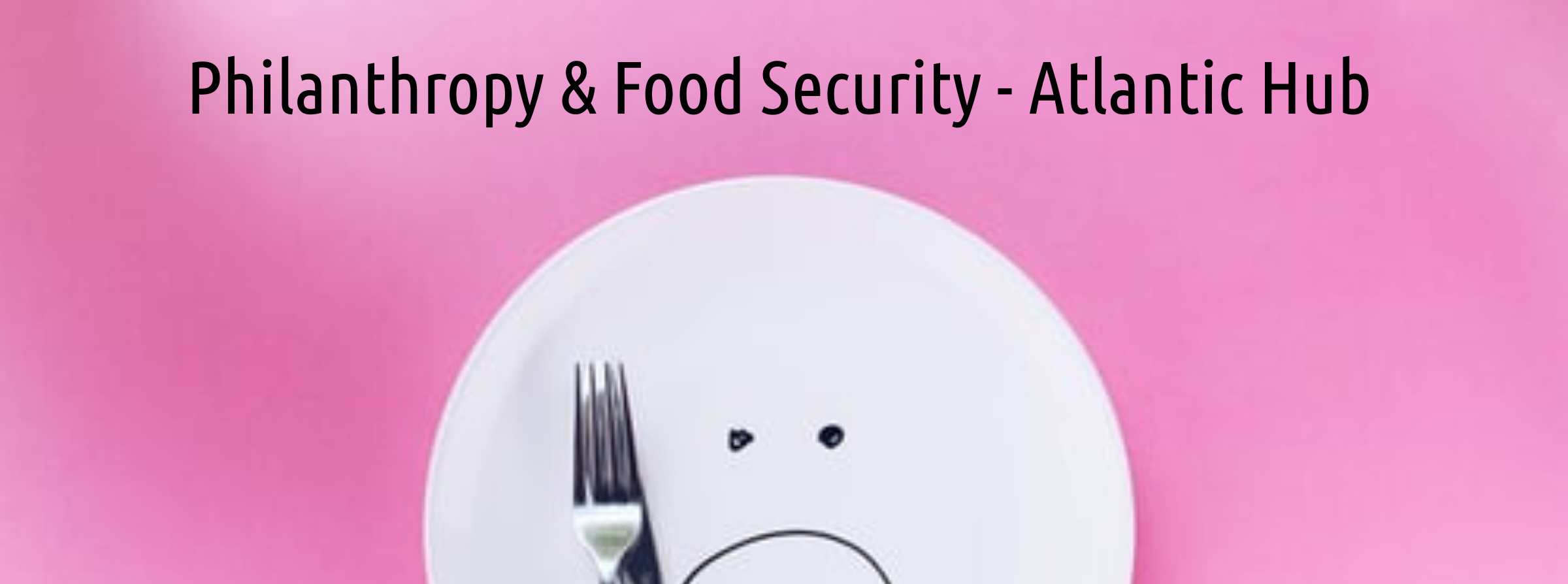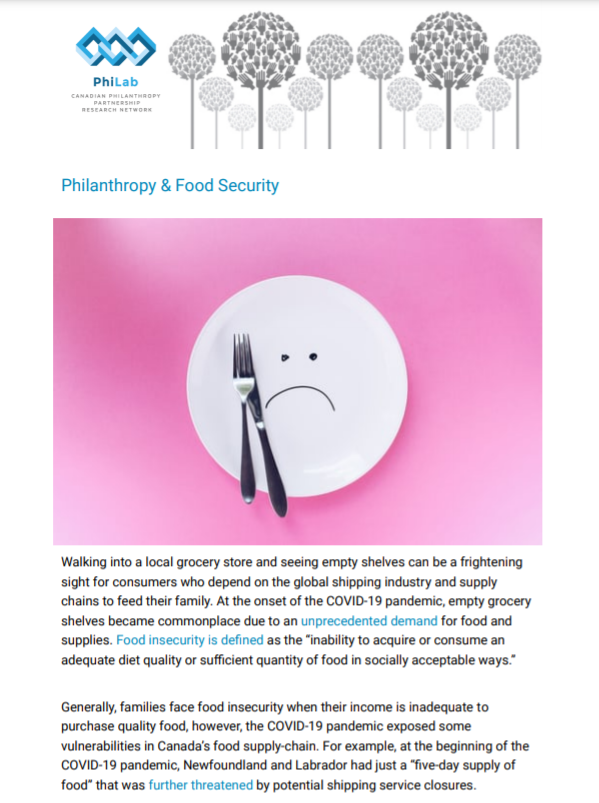Walking into a local grocery store and seeing empty shelves can be a frightening sight for consumers who depend on the global shipping industry and supply chains to feed their family. At the onset of the COVID-19 pandemic, empty grocery shelves became commonplace due to an unprecedented demand for food and supplies. Food insecurity is defined as the “inability to acquire or consume an adequate diet quality or sufficient quantity of food in socially acceptable ways.”
Generally, families face food insecurity when their income is inadequate to purchase quality food, however, the COVID-19 pandemic exposed some vulnerabilities in Canada’s food supply-chain. For example, at the beginning of the COVID-19 pandemic, Newfoundland and Labrador had just a “five-day supply of food” that was further threatened by potential shipping service closures.
Place-based philanthropic organizations play a key role in supporting post-pandemic community recovery strategies. In this special monthly edition, led by PhiLab’s Atlantic Hub, we explore the intersection of food security and philanthropy through innovative case studies and stories of resilient communities responding to the global health crisis.
Enjoy your reading!
- Local meals-on-wheels program helps rural seniors cope with COVID-19 isolation, by Roza Tchoukaleyska, Atlantic Hub, and published by The Conversation Canada
- Hubs of a New Normal: Bringing new life and community health hubs to old buildings of the Great Northern Peninsula of Newfoundland and Labrador, by Samantha Young, Atlantic Hub
- Interview: Beth Hunter, Program Director at the McConnell Foundation: The McConnell Foundation and the development of sustainable food systems, by David Grant-Poitras, Quebec Hub
-
Beyond the assortment of battles against food waste and food insecurity: the need for coordinated action, by Éliane Brisebois and René Audet, Quebec Hub
- Les fondations face à l’ODD 2 « Faim ‘Zéro’ » à Montréal : une forme de citoyenneté alimentaire ?, by Katia Scherer, Quebec Hub
- Limits and challenges of access to agroecological food – social technology and solidarity marketing at the Bem da Terra Virtual Market, Pelotas, Brazil, by Miria Raquiel da Rocha, Tiago de Garcia Nunes and Aline Mendonça dos Santos, International Research Unit – Latin America
- PhiLab Interviews: Jean-Raymon Momo, President of the Club des petits déjeuners africains (CAPD), by Lynda Rey, Quebec Hub & International Research Unit – Africa
- Research paper: Northern Manitoba Food, Culture and Community Collaborative An exploration of an innovative collaborative model, by Corrie Lynn McDougall, Western Hub
- Summary Report, by Kristen Pue, PhiLab Ontario
- Food Security under the spotlight in Northern Ontario: Partnerships and people making it happen, by United Way Canada
-
ECSF Stories: COVID-19 Has Exacerbated Food Insecurity — Here’s How 3 Organizations are Stepping Up, by Community Foundations Canada
- NOURISH: The future of food in health care, an initiative by The McConnell Foundation
March 2021 Newsletter – Philanthropy & Food Security
- Special Edition: Philanthropy & Food Security
- Next edition: Spotlight on PhiLab Researchers
- Recent Publications
- Upcoming events
- News from our Regional Centers
- News from our Members
- News from our Partners
- Featured Philanthropic Profile
- Alliance featured article of the month
- Consult the March 2021 newsletter here



